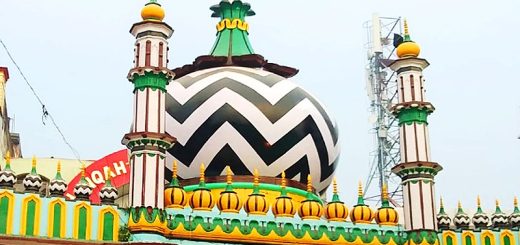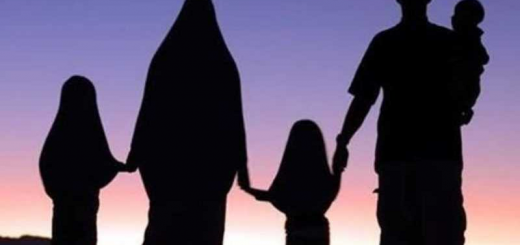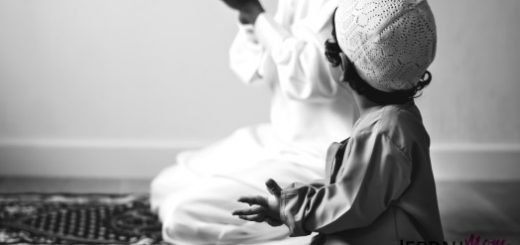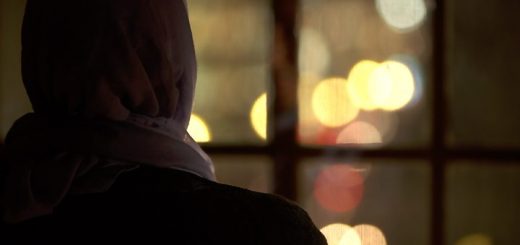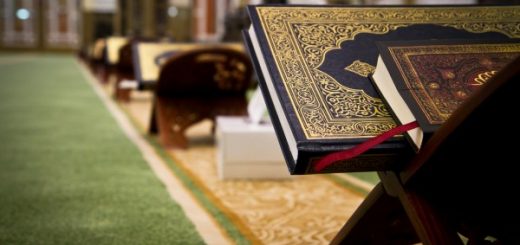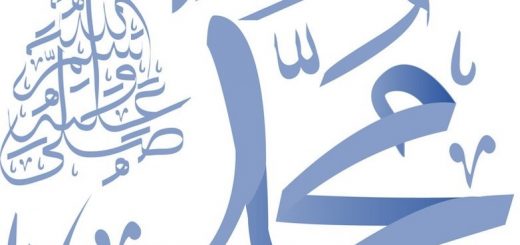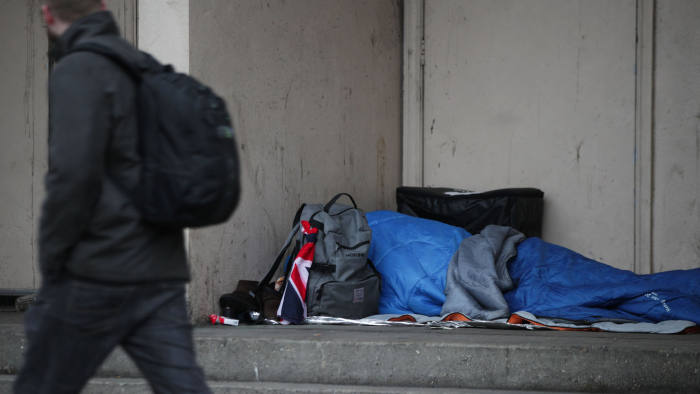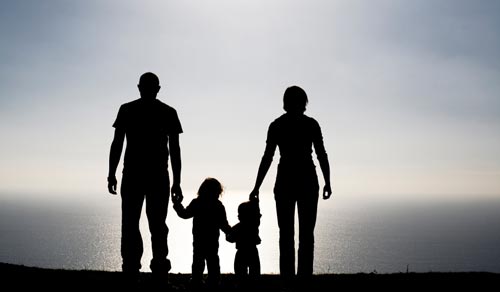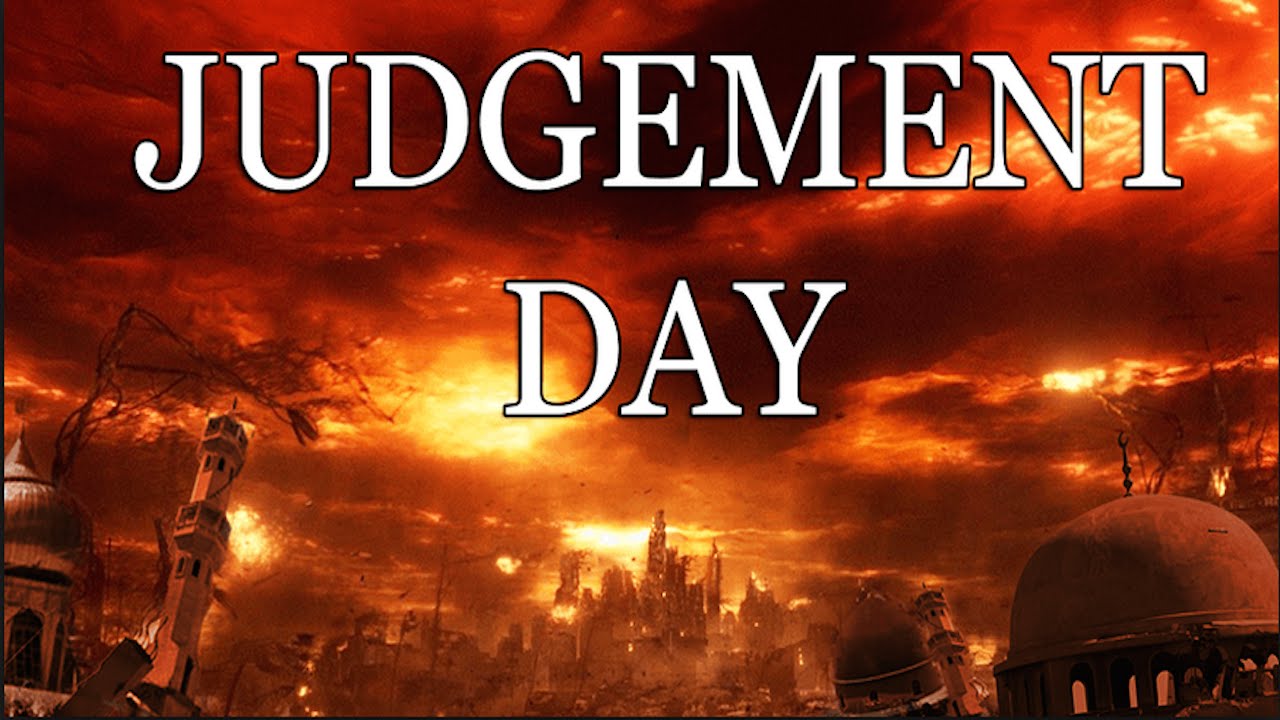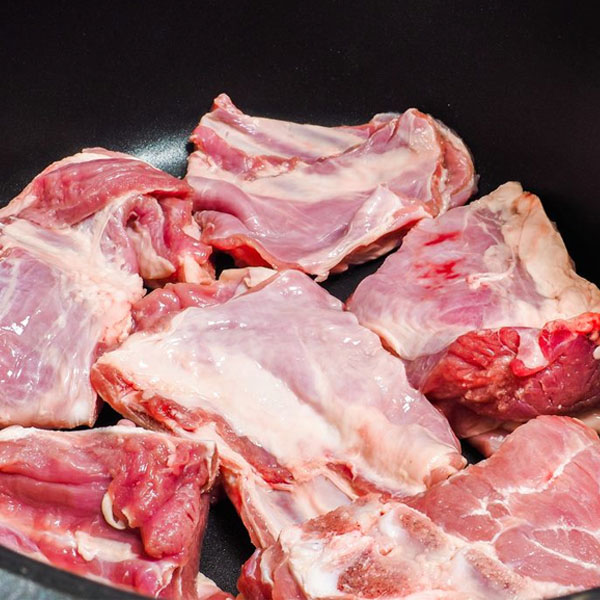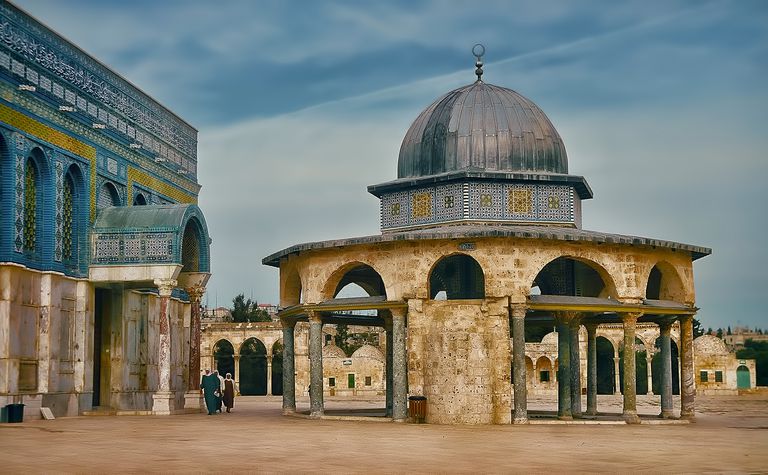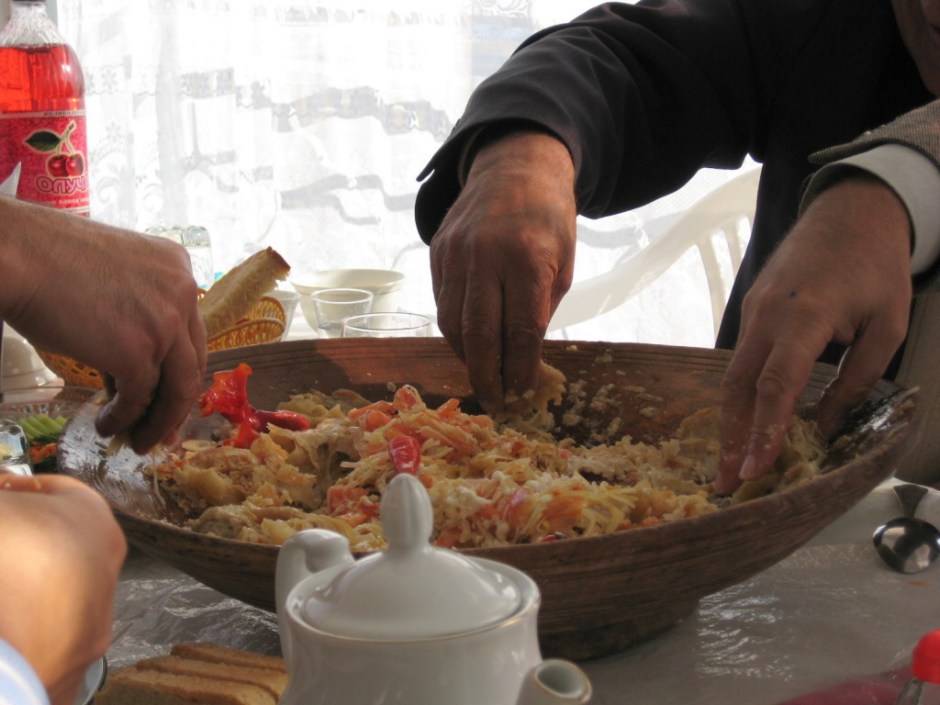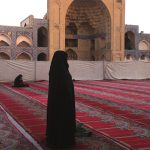QUESTION:
If the non-bāligh child of non-Muslim parents passes away what should our belief be regarding this child? Should he be considered a Muslim? Will he enter Jannah?
Questioner: Aadil from UK
ANSWER:
بسم اللہ الرحمن الرحیم
الجواب بعون الملک الوھاب اللھم ھدایۃ الحق والصواب
In worldly dealings, the non-bāligh child of non-Muslim parents, who was not able to discern, who could not differentiate between right and wrong, associatively follows them i.e. he will be treated as a disbeliever. He will not be washed nor shrouded, nor will Janāzah (funeral prayer) be performed nor supplication made for him, nor will he be buried in a Muslim graveyard. However, there are 9 or 10 different views with regards to what will happen to him in the Hereafter. One view is that if the non-bāligh child of a mushrik (polytheist) or kāfir, died in the state of not being able to discern, not able to differentiate between good or bad, then he is not of the people of the Fire, rather he is from the dwellers of Jannah, however he will be from the servants of the people of Jannah. Our Lord is very Merciful and Generous, He does not punish anyone without blame.
What is famously reported regarding our Imām Abū Hanīfah, may Allāh shower him with mercy, is hesitation (non-committal) on this matter as ‘Allāmah Shāmī writes in Radd al-Muhtār,
“فَإِنَّهُمْ مُشْرِكُونَ شَرْعًاأَيْ بِطَرِيقِ التَّبَعِيَّةِ مِنَحٌ فَالْمَعْنَى أَنَّهُمْ يُعَامَلُونَ شَرْعًا مُعَامَلَةَ آبَائِهِمْ أَمَّا حُكْمُهُمْ فِي الْآخِرَةِ فَفِيهِ أَقْوَالٌ عَشَرَةٌ أَحَدُهَا أَنَّهُمْ خَدَمُ أَهْلِ الْجَنَّةِ ، وَالْمَشْهُورُ عَنْ الْإِمَامِ التَّوَقُّفُ“
“They are mushriks (polytheists) in associative following [Minah]. So the meaning is that they are dealt with in the Sharī’ah the manner in which their parents are dealt with [meaning, they will not be bathed nor shrouded, nor will the funeral prayer be performed for them]. As for the ruling concerning them in the Hereafter, there are ten views; one is that they are the servants of the people of Jannah. That which is famous from the Imām is non-committal [meaning, Allāh Almighty Knows best regarding their state].”
[Radd al-Muhtār, vol. 6, pg. 750]
A bāligh or a non-bāligh who is able to rationally think does not associatively follow anyone, just as it is mentioned in Bahār-e-Sharī’at that it is a condition in associative following that the child himself is not able to discern between Islām and disbelief and if he is able to understand, then he does not associatively follow anyone in Islām or disbelief.
[Bahār-e-Sharī’at, vol. 2, part 7, pg. 93]
A non-bāligh who can not rationally think will not be regarded as an actual disbeliever, as disbelief has not occurred from him and adherence is only related to worldly matters just as A’lā Hazrat Imām Ahl al-Sunnah states in Fatāwā Ridawiyyah that the meaning of a child who is not able to rationally think who does not adhere to his non-Muslim parents or family never means that he is an actual disbeliever as this is invalid to begin with. The attribute of disbelief is definitely not established with him, rather he is attributed with the nature of Islām just as we have previously mentioned. This denoting [of being non-Muslim] is only in terms of ruling, meaning those rulings will apply on him in terms of Sharī’ah which will be applied on his father/the people of his household, even then they will not be so generally speaking, rather only in terms of worldly matters. For example, he will inherit from the wealth of a non-Muslim rather than of a Muslim, a non-Muslim inheritor will receive [a share of] his wealth not a Muslim, he can get married to a non-Muslim woman not a Muslim woman, if he dies, then the funeral prayer will not be performed for him, nor will he be bathed and shrouded like Muslims, nor will he be buried in a Muslim cemetery.
[Fatāwā Ridawiyyah, vol. 28, pg. 450]
The different views concerning the non-discerning children of disbelievers present in the books of ‘Aqā’id are as follows:
It is mentioned in Mirqāh,
“فقيل إنهم من أهل النار تبعا للأبوين وقيل من أهل الجنة نظرا إلى أصل الفطرة وقيل إنهم خدام أهل الجنة وقيل إنهم يكونون بين الجنة والنار لا منعمين ولا معذبين وقيل من علم الله منه أنه يؤمن ويموت عليه إن عاش أدخل الجنة ومن علم منه أنه يعجز ويكفر أدخله النار وقيل بالتوقف في أمرهم وعدم القطع بشيءوقيل إنهم يمتحنون بدخول النار في تلك الدار“
“[1] It is said they are from the people of the Fire in the associative following to their parents [meaning, children of Muslims in Paradise and of non-Muslims in Hell]. [2] It is also said they are from the people of Jannah looking at the original disposition (Fitrah) [i.e. inherent qualities of mind and character, referring back to Islām]. [3] It is said they are the servants of the people of Jannah. [4] It is also said that they will be between Jannah and Jahannam neither given bounties nor punished. [5] It is said that whosoever Allāh Knows that if he had lived, he would have believed and died upon belief, so He will enter him into Jannah, and the one [for whom is the opposite of this, i.e.] whom Allāh Knows would not be able to do so and would disbelieve, He will enter him into the Fire. [6] Also it is said that there should be non-committal regarding their matter and refraining from making a certain judgement of any sort. [7] It is also said they will be trialed [on the Day of Judgement] with entry into fire [they will be told to enter into fire and those who obey will, in reality, enter Jannah and those who disobey will actually enter Jahannam].”
[Mirqāh al-Mafātīh, pg. 360]
In Nuzhat al-Qārī [Sharh Sahīh al-Bukhārī], Shaykh Sharīf al-Haqq al-Amjadī, may Allāh shower him with mercy, has also mentioned these two views concerning the children of polytheists: [8] they will become dust [9] refraining.
[Nuzhat al-Qārī, vol. 2 pg. 871]
However from these views those whom the majority of the ulāmā’ have given more preference to and are sound and strong from the perspective of evidences are two:
[1] One should withhold from making a judgement regarding the non-bāligh children of disbelievers. This view is chosen because both types of Hadīths have reached us regarding the young children of disbelievers thus refraining in this matter is most preferred. Al-Hāfizh Mullā ‘Alī al-Qārī has also preferred this view.
[2] The non-discerning children of the disbelievers will be in Jannah. This is because they are not at fault and Allāh will not enter a person into Jahannam without there being blame.
Further to this, it is mentioned in a Blessed Hadīth that Sayyidah Hasnā’ bint Mu’āwiyah narrates that my paternal uncle mentioned that,
“قُلْتُ لِلنَّبِيِّ صَلَّى اللَّهُ عَلَيْهِ وَسَلَّمَ: مَنْ فِي الْجَنَّةِ؟ قَالَ: النَّبِيُّ فِي الْجَنَّةِ وَالشَّهِيدُ فِي الْجَنَّةِ وَالْمَوْلُودُ فِي الْجَنَّةِ وَالْوَئِيدُ فِي الْجَنَّةِ“
“I requested to the Prophet, may the peace and blessings of Allāh be upon him, ‘Who is in Jannah?’ He replied, ‘The Prophet is in Jannah, the martyr is in Jannah, the child is in Jannah and the child buried alive is in Jannah.’”
[Sunan Abū Dāwūd, Hadīth no. 2521]
Commentating upon the words of this Hadīth that the children will be in Jannah, Hakīm al-Ummah Muftī Ahmad Yār Khān Na’īmi says that the meaning is that every non-discerning child is of the people of Jannah, whether he is the child of a Muslim or a non-Muslim to the extent that the child from a miscarriage is also of the people of Jannah. Even though the child of a believer will be in a higher position and the child of a disbeliever in a lower position or will be a servant of the people of Jannah. Also the disbelieving Arabs would bury their new born daughters alive and they were termed as maw`ūdah. Wa`īd also has this meaning, in other words, the children of disbelievers who are buried alive are of the people of Paradise. It is known from this Hadīth that the non-discerning children of the disbelievers are from the people of Jannah. The narrations opposing this Hadīth are abrogated.
[Mir’āt al-Manājīh, vol. 5, Hadīth no. 750]
واللہ تعالی اعلم ورسولہ اعلم صلی اللہ علیہ وآلہ وسلم
کتبہ ابو الحسن محمد قاسم ضیاء قادری
Answered by Mufti Qasim Zia al-Qadri
Translated by Mawlana Ibrar Shafi
Read the original Urdu answer here – [Q-ID0202] The fate of a non-Muslim child
Please also see:
[Q-ID0292] Which dua can we make and not make, for a non-Muslim?
[Q-ID0265] Will all Disbelievers of Islam enter Jahannam eternally?
[Q-ID0206] What is the fate of the insane non-Muslim?
[Q-ID0186] Is it possible that the Prophet’s intercession will include the non-Muslims in Hell?
Refutation of ‘The Study Quran’ by the Ulama of Zabid
[Q-ID0054] My non-Muslim neighbour passed away, can I attend his funeral?
